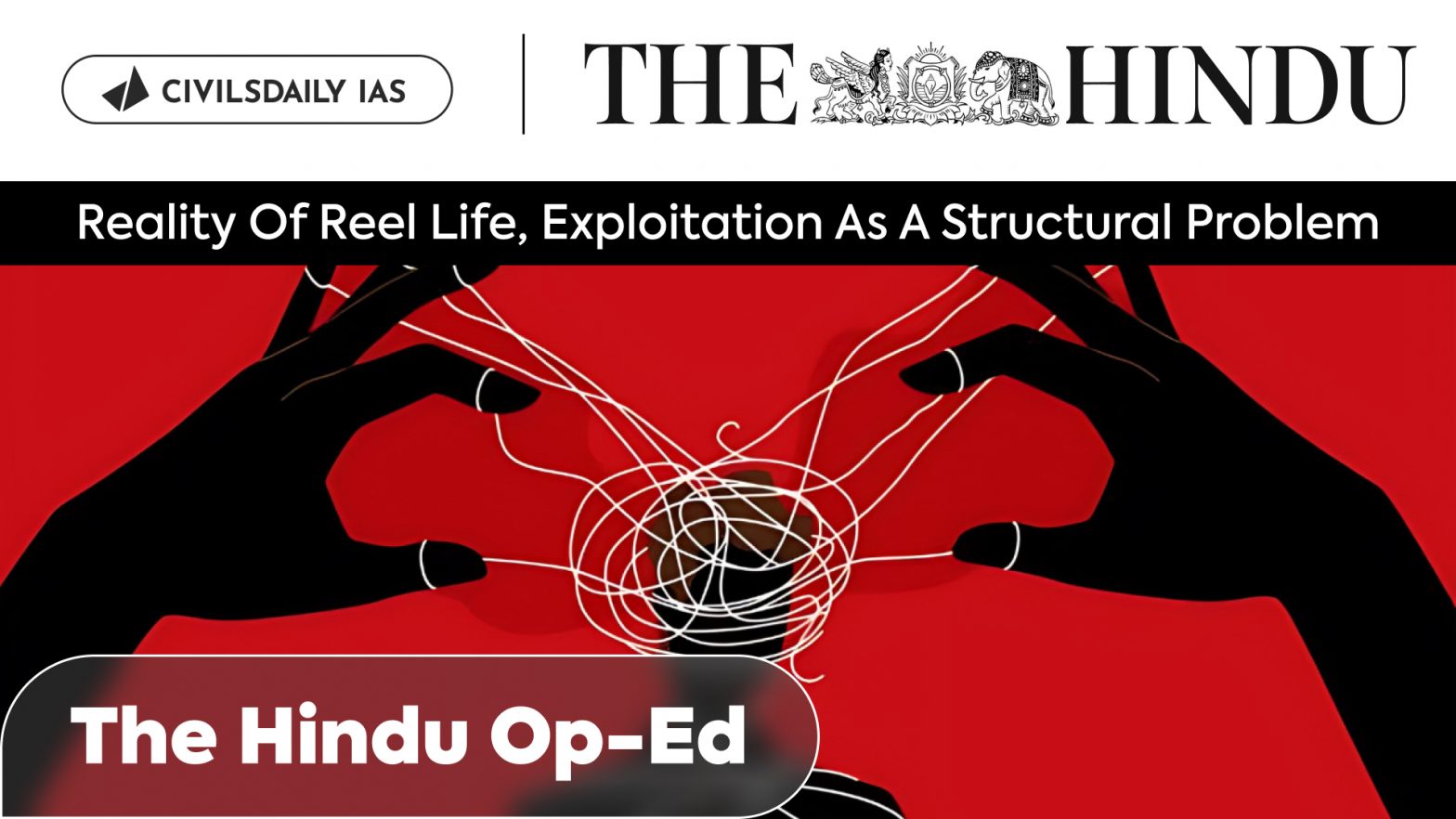| PYQ Relevance: Q Judicial Legislation is antithetical to the doctrine of separation of powers as envisaged in the Indian Constitution. In this context justify the filing of a large number of public interest petitions praying for issuing guidelines to executive authorities. (UPSC IAS/2020) Q What are the continued challenges for Women in India against time and space? (UPSC IAS/2019) Q An apparel manufacturing company having a large number of women employees was losing sales due to various factors. The company hired a reputed marketing executive, who increased the volume of sales within a short span of time. However, some unconfirmed reports came up regarding his indulgence in sexual harassment at the work place. After sometime, a woman employee lodged a formal complaint to the management against the marketing executive about sexually harassing her. Faced with the company’s indifference in not taking cognizance of her grievance, she lodged an FIR with the Police. Realizing the sensitivity and gravity of the situation, the company called the women employee to negotiate. In that she was offered a hefty sum of money to withdraw the complaint and the FIR and also give in writing that the marketing executive is not involved in this case. Identify the ethical issues involved in this case: what options are available to the women employee? (UPSC IAS/2019) |
Mentor comment: India faces significant challenges regarding sexual harassment and violence against women, deeply rooted in societal norms and systemic issues. Despite legislative measures like the Sexual Harassment of Women at Workplace (Prevention, Prohibition and Redressal) Act of 2013, the prevalence of sexual violence remains alarmingly high. Justice K. Hema Committee report, released by the Kerala government on August 19, 2024, highlights severe issues of sexual exploitation and gender discrimination faced by women in the Malayalam film industry. Initially submitted in 2019, the report reveals a culture of harassment, including the “casting couch” phenomenon, where women are pressured to exchange sexual favors for roles. It also addresses inadequate facilities and the absence of basic rights for women in the industry.
Let’s learn!
__
Why in the news?
The Justice K. Hema Committee report has sparked significant public debate and led to calls for reforms, including the establishment of an Internal Complaints Committee to address issues of sexual exploitation and gender discrimination faced by women effectively.
What does the Report say on Culture of Assault?
- On Sexual Assault and Consent: Instances of sexual assault are not isolated events but are rooted in societal practices that undermine women’s autonomy and consent.
- The National Crime Records Bureau reported 31,516 cases of rape in India in 2022, indicating a significant prevalence of sexual violence against women.
- The Justice Hema Committee report emphasizes that rape is a manifestation of a culture that views women as objects rather than individuals with rights.
- On Workplace Harassment: The Vishaka guidelines established in 1997 aimed to protect women from workplace harassment, leading to the Sexual Harassment of Women at Workplace Act, 2013, which mandates the formation of Internal Complaints Committees (ICC).
- The report argues that ICCs are inadequate for the film industry due to potential biases and influence from abusers, advocating for an independent government forum to address these issues.
Lack of registration of crimes vs. Question on the Principle of Survivor Anonymity:
- Nipun Saxena vs Union Of India (2018): The SC explained the importance of penalization of the disclosure of the name and the identity of the survivors of sexual offenses as mandated in Section 228A of the IPC, which is now reiterated in Sect 72 and 73of the BNS.
- The provision’s objective is to protect survivors from hostile discrimination and future harassment.
- Puttaswamy Judgement (2017): The Right to Privacy is integral to the Right to Life under Article 21 of the Constitution. Further, our criminal justice system initiates prosecution against the accused on behalf of the victim but it becomes quite difficult to prove a crime without the victim’s cooperation.
- Right to Livelihood: Survivors fear potential retaliation from the abuser and the rest of society, in terms of refusal to give them work, and being branded as ‘problem-makers’.
| CASE STUDY – #MeToo Movement:The accusations against Harvey Weinstein in 2017 sparked the global #MeToo movement, highlighting issues of sexual harassment and assault in various industries. |
Need for Structural Reforms:
- Acknowledgment of Challenges: The report aims to empower Indian women by raising awareness about workplace discrimination.
- The findings in the Hema Committee report should lead to significant structural reforms in the Malayalam film industry, with government leadership being crucial.
- Comprehensive Solutions Required: Issues such as inadequate sanitation and workplace bias must be thoroughly studied and addressed to improve conditions for women.
- The report emphasizes the unique difficulties faced by women in lower-tier roles in the film industry, beyond just lead actresses.


